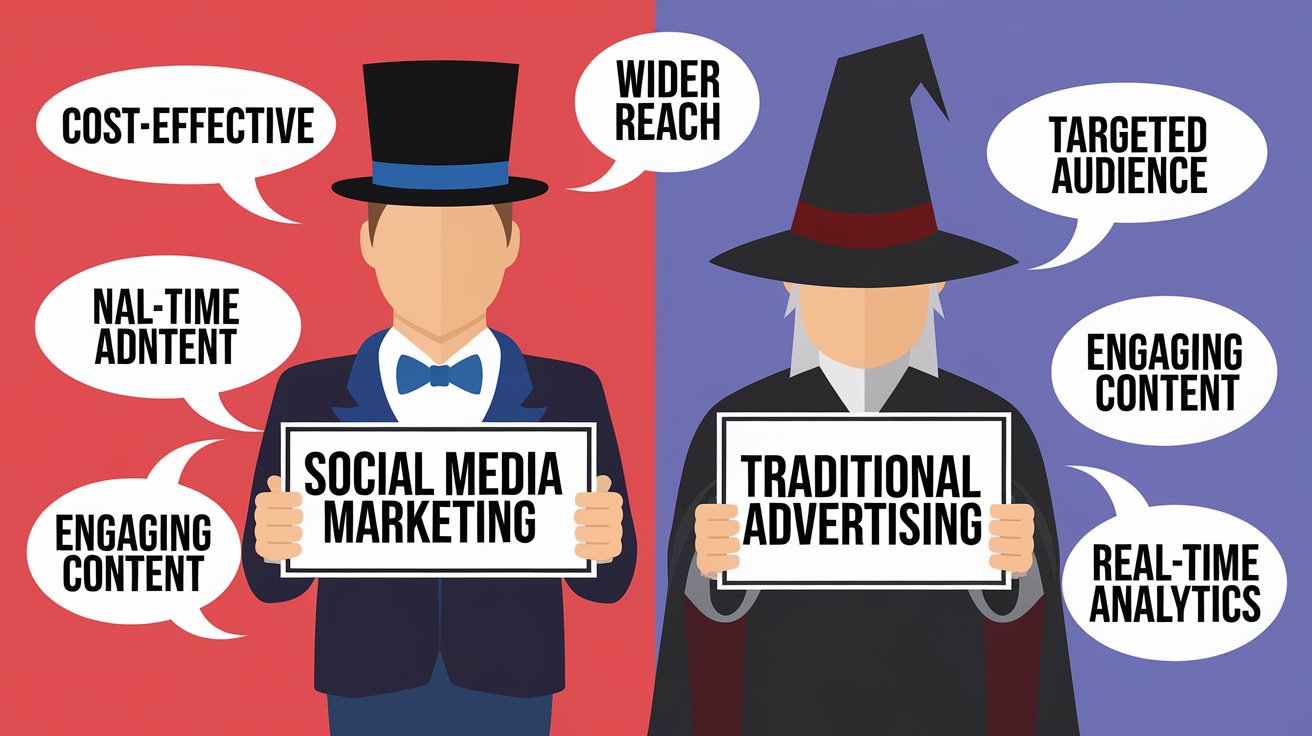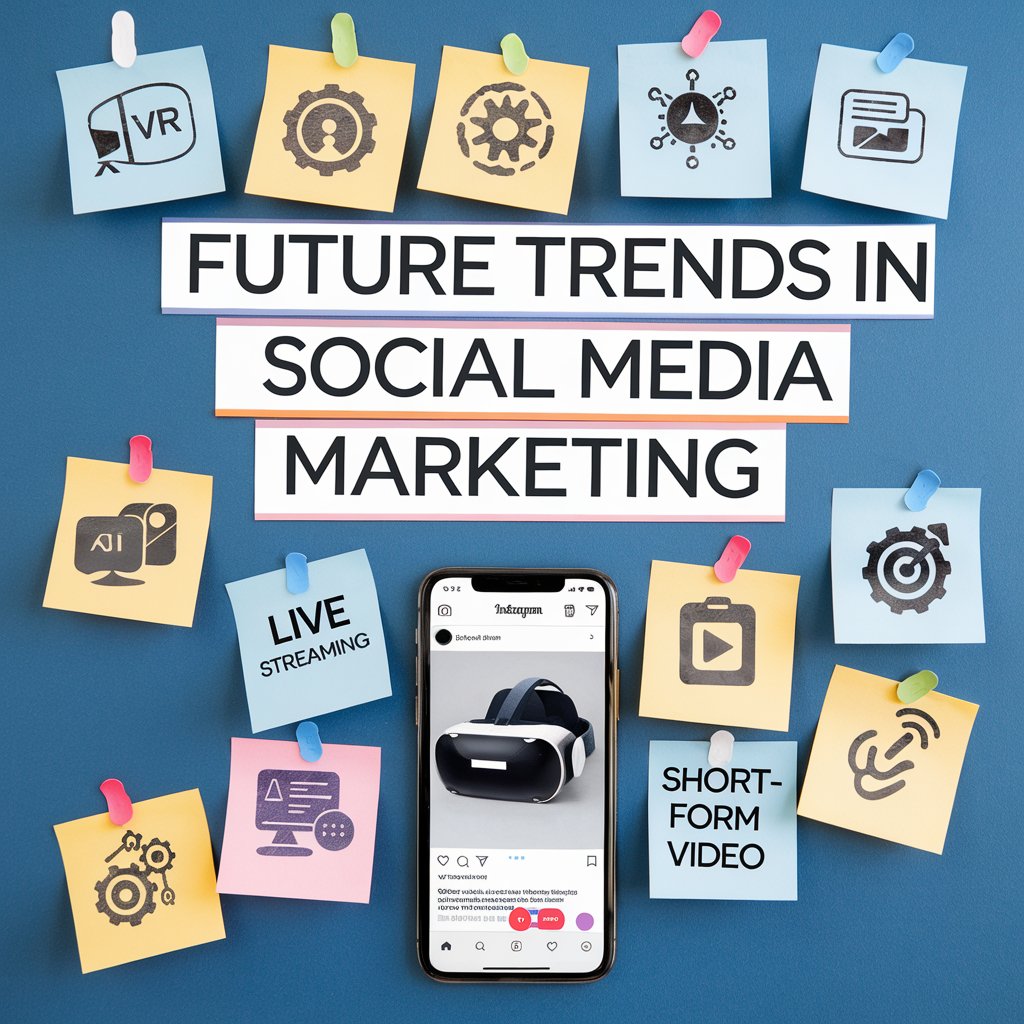In today’s digital-first world, social media has transformed from a mere communication tool into a powerful marketing platform. Whether you’re a small local business or a global enterprise, social media marketing (SMM) is an essential component of your marketing strategy. With billions of users actively engaging on platforms like Facebook, Instagram, LinkedIn, and Twitter, businesses can leverage these networks to build brand awareness, connect with customers, and drive business growth.
What is Social Media Marketing?
Social media marketing refers to the process of using social media platforms to promote a product, service, or brand. This involves creating and sharing content such as text, images, videos, and ads, aimed at achieving marketing and branding goals. Different platforms offer different advantages, so businesses must choose the right ones based on their target audience and objectives.

Benefits of Social Media Marketing for Businesses

Social media marketing offers numerous benefits for businesses looking to grow and succeed in a competitive environment. Let’s dive into some key advantages:
1. Increased Brand Awareness
One of the primary goals of SMM is to make your brand more recognizable. With consistent posting, engagement, and strategic use of hashtags, businesses can increase their online presence. A brand that frequently appears in users’ feeds creates familiarity, making it more likely that potential customers will think of you when they’re ready to buy.
2. Better Customer Engagement and Interaction
Social media allows for direct communication with your audience. This two-way interaction is valuable in fostering a connection with customers, answering their questions, and addressing concerns in real-time. Platforms like Instagram and Facebook provide opportunities to engage through comments, direct messages, polls, and live videos, making it easier for brands to build trust and loyalty.
3. Driving Website Traffic and Lead Generation
Social media platforms are excellent tools for driving traffic to your website. By sharing engaging content and providing clear calls-to-action (CTAs), businesses can guide users from their social channels directly to their websites. Whether you’re promoting a blog post, product launch, or special offer, these platforms can help convert followers into leads and, ultimately, customers.
4. Cost-Effective Advertising Solutions
Compared to traditional advertising channels, social media marketing is relatively cost-effective. Many platforms offer budget-friendly advertising options where businesses can define their spending limits and target very specific audiences. This means even small businesses with limited resources can compete with larger players by leveraging paid social media ads.
5. Competitive Advantage: Staying Relevant and Visible
In a competitive market, maintaining visibility is crucial for businesses. Active participation on social media not only helps in staying relevant but also provides insights into industry trends and competitor strategies. Keeping a close eye on social media trends and competitor activity allows businesses to refine their own strategies and stay ahead in the market.
Key Elements of a Successful Social Media Marketing Strategy
For a business to succeed with social media marketing, it’s essential to have a well-thought-out strategy. Here are the key elements to consider:
1. Setting Clear Goals and Objectives
Before jumping into content creation, it’s important to define your marketing goals. Are you looking to increase brand awareness, generate leads, or boost sales? Each goal will require a different approach, and having a clear plan helps guide content creation and posting schedules.
2. Understanding Your Target Audience
Social media is vast, but not all platforms are created equal for every business. Understanding where your audience spends their time is critical. For instance, a B2B business might find more success on LinkedIn, while a fashion brand might thrive on Instagram. Knowing your audience’s demographics, interests, and behaviors will help tailor your strategy.
3. Content Creation: Types and Trends
Creating engaging and valuable content is at the core of any social media marketing plan. Content types can range from blog posts and infographics to videos and user-generated content (UGC). Staying on top of trends, such as short-form video content on TikTok or Instagram Reels, can provide businesses with an edge over competitors.
4. Frequency and Timing of Posts
Posting consistently is important for maintaining audience engagement, but the frequency and timing can vary depending on the platform and target audience. By analyzing performance metrics, businesses can determine the best times to post to maximize engagement and reach.
5. Paid vs. Organic Social Media Strategies
Balancing organic efforts with paid strategies can help accelerate growth. While organic posts allow for more authentic engagement with your audience, paid campaigns can target new potential customers, expand your reach, and drive specific actions like conversions or lead generation.
Role of Social Media in Building Brand Identity
A business’s brand identity plays a huge role in how it is perceived by customers, and social media is the perfect platform to showcase it. Here are some ways SMM helps build a strong brand identity:
1. Establishing a Consistent Brand Voice
Having a consistent brand voice across all social media channels is crucial for building recognition and trust. Whether it’s a playful, friendly tone on Instagram or a more professional tone on LinkedIn, the key is to ensure your messaging aligns with your brand values.
2. Showcasing Brand Personality Through Visuals and Stories
Visual content such as images, videos, and stories is at the heart of social media marketing. Platforms like Instagram and Facebook offer features like stories, reels, and live streams, allowing businesses to share behind-the-scenes content, product launches, and other engaging visuals that humanize the brand.
3. Humanizing the Brand: Connecting with the Audience
Through social media, brands can interact directly with their customers, respond to questions, and acknowledge feedback. This real-time interaction helps humanize the brand, fostering a deeper connection with the audience. Brands that actively engage with their followers often develop loyal communities around their products and services.
The Impact of Social Media on Customer Behavior
Social media doesn’t just influence how businesses market—it significantly impacts customer behavior and decision-making.

1. The Influence of Social Proof and User-Generated Content
Social proof, in the form of reviews, testimonials, and user-generated content, plays a major role in influencing purchase decisions. People tend to trust content created by fellow consumers over traditional advertisements. By encouraging customers to share their experiences on social media, businesses can leverage social proof to attract new customers.
2. Social Media as a Tool for Customer Reviews and Feedback
Social platforms give customers a space to share their opinions, both positive and negative. Brands that listen to customer feedback and respond promptly show that they value their customers’ opinions, which helps to build trust and credibility.
3. Fostering Trust and Loyalty Through Social Interactions
Engaging with customers on social media builds a sense of community and loyalty. By offering prompt customer service, running promotions, and sharing user-generated content, businesses can create lasting relationships that encourage repeat purchases and word-of-mouth marketing.
Social Media Analytics: Measuring Success
The success of social media marketing is measurable through analytics. Every platform provides tools to track performance metrics such as reach, engagement, conversions, and more. Businesses must regularly review these metrics to determine what’s working and make data-driven adjustments to their strategies.
Key metrics to track include:
- Engagement rates: Likes, shares, comments, and clicks.
- Reach and impressions: The number of people who see your content.
- Conversions: How many social interactions turn into meaningful actions, like sign-ups or sales.
Future Trends in Social Media Marketing
As social media continues to evolve, staying ahead of trends is crucial for maintaining a competitive edge. Some of the emerging trends include:

1. The Rise of Video Content and Live Streaming
Video content is dominating the social media landscape, with platforms like Instagram, TikTok, and YouTube leading the charge. Live streaming is also gaining popularity, offering brands a way to engage with their audience in real-time.
2. Social Commerce: Integrating E-Commerce with Social Platforms
Social commerce is the intersection of social media and e-commerce, allowing users to shop directly within platforms like Instagram and Facebook. This trend simplifies the purchasing process and provides a seamless experience for consumers.
3. The Role of AI and Automation in Social Media Marketing
Artificial intelligence and automation tools are becoming increasingly important in managing social media efforts. From chatbots that handle customer queries to AI-driven content suggestions, these technologies can enhance efficiency and improve engagement.
4. Influence of Augmented Reality and Virtual Reality
Augmented reality (AR) and virtual reality (VR) are adding new dimensions to how brands interact with customers. For example, AR filters on platforms like Instagram provide interactive ways for users to engage with branded content.
Conclusion
Social media marketing has become an indispensable part of modern business strategies. With the ability to reach a global audience, foster customer relationships, and build a recognizable brand, businesses that effectively utilize social media can gain a significant competitive edge. As the landscape continues to evolve, staying agile and adapting to new trends will ensure long-term success.